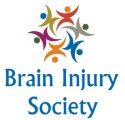
A traumatic brain injury can be a life-changing event, not only for the victim but for his or her family as well.
Although a brain injury can have long-lasting effects, doctors and families should never give up hope for a patient. Even when the odds seem insurmountable, some individuals have made remarkable recoveries and many have gone on to live happy, fulfilling lives.
College Student Beats the Odds
In November 2012, a young man who was just two months into his junior year at Tufts University was struck by a vehicle as he was walking in a crosswalk. The impact of the accident was severe: The student’s head smashed through the vehicle’s windshield, and he sustained a serious traumatic brain injury.
The prognosis was initially grim, and doctors anticipated he could be permanently disabled. Yet as the student’s mother wrote recently in the Washington Post, he made a surprising recovery. A number of factors contributed to his recovery, she wrote, including speedy emergency medical attention. Soon after the accident, he was taken to one of the area’s top-rated trauma centers, with a dedicated neurosciences ICU. Doctors there performed key life-saving actions to prevent further damage.
This didn’t make the road to recovery easy, however. The impact caused some nerve fibers to tear, while others were sheared completely off. Tests and MRI scans also indicated damage to the brain stem. These types of injuries often lead to complications as well as the potential need for long-term care. The good news was the man’s neocortex suffered very little damage and this factor, along with his youth, went a long way towards his recovery.
Little by little, he began to show signs of recovery: opening his eyes, tracking voices, wiggling his toes and more. While these actions may seem minor, to brain injury victims and their families, they are major accomplishments.
His recovery didn’t stop there. Thanks to his strong support system of family and friends, the student continued to make dramatic improvements in the hospital, later in rehabilitation and finally at home. His family and friends stood by his side and kept up hope the entire way.
A little less than a year after the accident, he had not only regained a majority of his cognitive function, but once again was enrolled full time in his university. While he still has work ahead of him, his recovery thus far is nothing short of miraculous.
Factors that Improve Chances of Recovery
Many factors can have a positive impact on a brain injury victim’s chances of recovery. While it is true that medication and therapy can assist in recovery, not all TBI victims respond the same way. Some people never are able to recover from their injuries, yet others can regain much of their cognitive, emotional and physical abilities. The question is, what can you do to increase a TBI victim’s chances of recovery?
Some of the most important contributing factors to a successful recovery include:
- Immediate medical attention
- A quick, proper diagnosis followed by top-notch medical treatment
- Emotional support from family and friends
- Determination
- A strong support team (both professional and personal)
- A desire to achieve an improved quality of life and functional capacity
- Maintaining a positive outlook
- Utilization of existing resources
Assistance and support for brain injury victims can and should begin immediately. Once a victim has received medical attention, emotional support is key to helping the victim avoid becoming depressed or losing the will to live. Doctors report that they have seen a significant difference in recovery between patients who receive emotional support in the days, weeks and months after their injury and those who do not.
Brain Injury Survivors: What the Future May Hold
So much remains unknown about the brain and how it works. In the future, newer and better treatments may be available for victims of brain injuries. A full recovery may become possible in more cases.
Yet there is hope now, and medical science has come a long way in recent years. It is important not to give up while you offer your loved one emotional support and care in the early days after the injury. It can make a difference.
Guest post
Ashley Krohn is a new mom, sports enthusiast, iced coffee fanatic and animal lover. When she’s not receiving slobbery baby kisses (whether that be from her son or one of her critters) she enjoys writing about topics relating to health, family and marketing. Find her on Twitter @Tweetinash.
